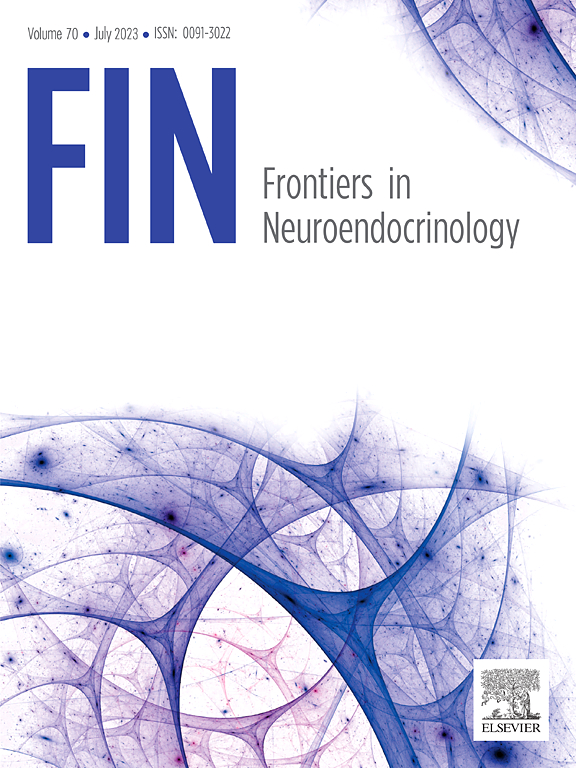The overlooked mental health burden of polycystic ovary syndrome: neurobiological insights into PCOS-related depression
IF 6.7
1区 医学
Q1 ENDOCRINOLOGY & METABOLISM
引用次数: 0
Abstract
Polycystic ovary syndrome (PCOS) is a prevalent endocrine disorder affecting 6–13% of reproductive-aged women worldwide. It is primarily characterized by ovarian dysfunction, hyperandrogenism, and metabolic disturbances. However, women with PCOS also face a heightened risk of depression, possibly due to dysregulation in endocrine and immune systems and gut microbiome disturbances. Symptoms of PCOS such as infertility, obesity, and hirsutism can also cause psychological distress and further exacerbate depression symptoms. Despite this comorbidity, mental health aspects of PCOS are often overlooked in the medical field, leading to insufficient support and negative impacts on the quality of life of PCOS patients. This review explores how distinct PCOS phenotypes influence physiological and psychological outcomes and the possible biological mechanisms involved. We also examine the effects of existing treatments on PCOS symptoms and depression. Addressing both physiological and psychological challenges is crucial for developing targeted, personalized interventions that improve outcomes for individuals diagnosed with PCOS.

多囊卵巢综合征被忽视的心理健康负担:多囊卵巢综合征相关抑郁的神经生物学见解
多囊卵巢综合征(PCOS)是一种普遍的内分泌疾病,影响全世界6-13%的育龄妇女。其主要特征是卵巢功能障碍、雄激素过多和代谢紊乱。然而,患有多囊卵巢综合征的女性也面临着更高的抑郁风险,可能是由于内分泌和免疫系统失调以及肠道微生物群紊乱。多囊卵巢综合征的症状如不孕、肥胖和多毛症也会引起心理困扰,并进一步加剧抑郁症状。尽管多囊卵巢综合征存在这种共病,但多囊卵巢综合征的心理健康方面在医学领域往往被忽视,导致支持不足,并对多囊卵巢综合征患者的生活质量产生负面影响。这篇综述探讨了不同的多囊卵巢综合征表型如何影响生理和心理结果以及可能涉及的生物学机制。我们还研究了现有治疗方法对多囊卵巢综合征症状和抑郁的影响。解决生理和心理挑战对于制定有针对性的个性化干预措施以改善多囊卵巢综合征患者的预后至关重要。
本文章由计算机程序翻译,如有差异,请以英文原文为准。
求助全文
约1分钟内获得全文
求助全文
来源期刊

Frontiers in Neuroendocrinology
医学-内分泌学与代谢
CiteScore
13.30
自引率
6.80%
发文量
62
审稿时长
68 days
期刊介绍:
Frontiers in Neuroendocrinology (FIN) publishes a wide range of informative articles including comprehensive reviews, systematic reviews, opinion pieces, and meta-analyses. While the majority of reviews are invited, we also embrace unsolicited reviews and meta-analyses, as well as proposals for thematic special issues, provided they meet our rigorous quality standards. In addition, we encourage authors to submit commentaries that concisely present fresh ideas or offer further analysis to delve deeper into the implications of an article published in our journal.
 求助内容:
求助内容: 应助结果提醒方式:
应助结果提醒方式:


